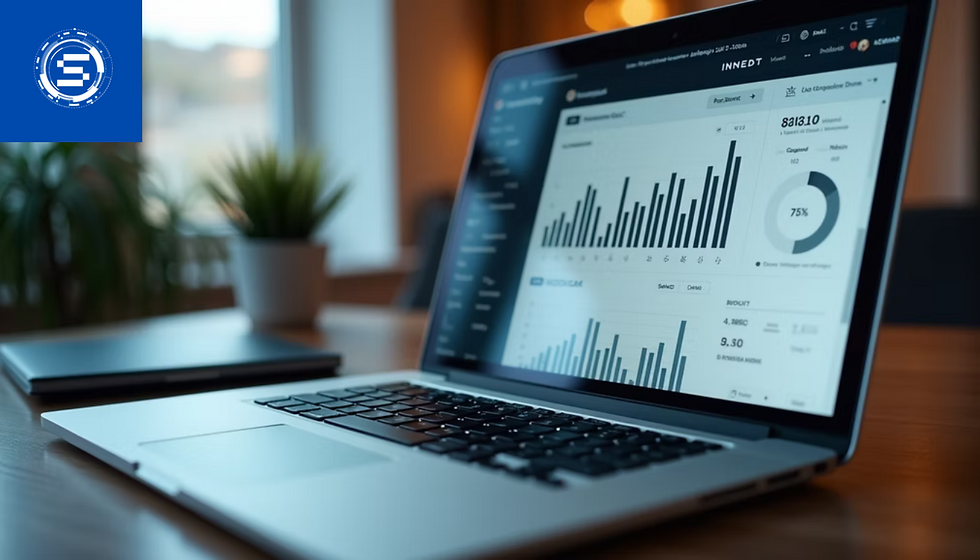Understanding the Basics of Online Advertising
- Shockwave Digital Agency
- Sep 1
- 3 min read
Online advertising has become an essential part of modern business strategies. It allows companies to reach a vast audience quickly and efficiently. Whether you are a small business owner or a marketing professional, understanding the fundamentals of online advertising can help you make better decisions and improve your campaigns.
What is Online Advertising?
Online advertising refers to the use of the internet to deliver promotional marketing messages to consumers. It includes various formats such as display ads, search engine marketing, social media ads, video ads, and more. The goal is to attract potential customers, increase brand awareness, and drive sales.
Some common types of online advertising include:
Pay-Per-Click (PPC): Advertisers pay each time a user clicks on their ad.
Display Ads: Visual banners or images placed on websites.
Social Media Ads: Ads shown on platforms like Facebook, Instagram, LinkedIn, and Twitter.
Video Ads: Short commercials or promotional videos on platforms like YouTube.
Native Ads: Ads that blend in with the content of the website or app.
Online advertising offers several advantages over traditional advertising, such as precise targeting, real-time analytics, and cost-effectiveness.

Key Components of Online Advertising
To create a successful online advertising campaign, it is important to understand its key components:
Target Audience
Identifying your target audience is crucial. This includes demographics, interests, behaviors, and location. Knowing who you want to reach helps tailor your message and choose the right platforms.
Budget
Setting a clear budget helps control costs and measure return on investment (ROI). Online advertising allows flexibility, from small daily budgets to large-scale campaigns.
Ad Creative
The ad creative includes the visuals, text, and call-to-action (CTA). It should be engaging, clear, and aligned with your brand message.
Platforms
Choosing the right platform depends on your audience and goals. For example, LinkedIn is ideal for B2B marketing, while Instagram works well for visual products targeting younger audiences.
Metrics and Analytics
Tracking performance metrics such as click-through rates (CTR), conversion rates, and cost per acquisition (CPA) helps optimize campaigns for better results.

How much should I pay a digital marketer?
Hiring a digital marketer can significantly improve your online advertising efforts. However, the cost varies depending on experience, location, and the scope of work.
Factors Influencing Cost
Experience Level: Junior marketers charge less, while experts with proven results command higher fees.
Project Scope: One-time campaigns cost less than ongoing management.
Services Included: Some digital marketers offer comprehensive packages including SEO, content creation, and paid ads.
Location: Rates differ globally; marketers in major cities or developed countries often charge more.
Typical Pricing Models
Hourly Rate: $50 to $150 per hour depending on expertise.
Monthly Retainer: $1,000 to $5,000+ for ongoing services.
Project-Based: Fixed price for specific campaigns or tasks.
Recommendations
Define your goals clearly before hiring.
Ask for case studies or references.
Consider working with agencies or freelancers who specialize in your industry.
Evaluate the potential ROI to justify the investment.
By understanding these factors, you can budget effectively and find the right digital marketer to boost your online advertising success.
Best Practices for Effective Online Advertising
To maximize the impact of your online ads, consider these best practices:
Set Clear Objectives
Define what you want to achieve - brand awareness, lead generation, sales, or website traffic.
Use Precise Targeting
Utilize platform tools to target specific demographics, interests, and behaviors.
Create Compelling Ad Content
Use strong headlines, clear CTAs, and eye-catching visuals.
Test and Optimize
Run A/B tests on different ad versions to see what works best.
Monitor Performance Regularly
Use analytics to track results and adjust your strategy accordingly.
Leverage Retargeting
Show ads to users who have previously interacted with your website or content.
Stay Updated on Trends
Online advertising platforms frequently update their algorithms and features.

Exploring Digital Marketing Services
Many businesses choose to partner with professionals to handle their online advertising. If you want expert help, consider exploring digital marketing services that offer comprehensive solutions. These services can manage everything from strategy development to campaign execution and analytics, saving you time and improving results.
By working with experienced providers, you gain access to the latest tools and industry knowledge, ensuring your advertising budget is well spent.
Moving Forward with Online Advertising
Online advertising is a dynamic and powerful tool for businesses of all sizes. By understanding its basics, setting clear goals, and applying best practices, you can create campaigns that deliver measurable results. Whether you choose to manage your ads in-house or hire professionals, staying informed and adaptable is key to success in the digital landscape.
Start small, test different approaches, and scale your efforts as you learn what resonates with your audience. With patience and persistence, online advertising can become a cornerstone of your marketing strategy.




